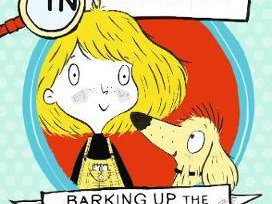
Reading & Libraries
Children's Author Event: Stick and Fetch Investigate with Elissa Elwick - Beeston Library
Join Elissa, award winning illustrator of the Stick & Fetch book series, for a fun, interactive eve…
Our new library catalogue is live!
Log in now
to browse, reserve and renew, or
visit our library service updates
for the latest news and tips.
Join Inspire's Ellie as she explores the age old question: is the book always better than the movie, and what is it that makes both so spellbinding?
Sat by the campfire, on the phone to a relative, or listening to a radio advertisement – as humans we need stories. From Prehistory to the age of technology – we have a need to connect, to empathise, and to make sense of the world around us. In a world filled with screens and distractions, there's something uniquely captivating about delving into the pages of a book. But what is it about books that sets them apart in the realm of storytelling? Do films or screen adaptations achieve the same thing?
Books provide an emotional depth. When we read, we're not just passive observers; we're active participants, stepping into the shoes of characters - feeling their joys, sorrows, and fears alongside them. This deep emotional connection fosters empathy and understanding, forging bonds between readers and characters that can last a lifetime. Contrastingly, films and screen adaptations offer a different experience. While they bring stories to life in visually stunning ways, they are ultimately the product of someone else's imagination. Unlike books, which require readers to engage their own creativity and imagination, films provide a more passive form of storytelling. This doesn't diminish their impact though. Seeing beloved characters come to life on screen can be a deeply moving experience, reminding us of the power of cinema to evoke emotions and stir the soul.

However, we’ve probably all heard someone out of the cinema say “the book was better”. Sometimes the screen adaptation fails to fully capture the essence of the original book. Take Neil Gaiman's "Stardust," for example, where the film opts for a more family-friendly approach, diverging from the darker tones of the book.
Despite this, there's no denying the cultural impact that screen adaptations can have. From sparking trends world-wide (think Harry Potter) to introducing audiences to new stories and genres, film and TV adaptations play a vital role in shaping our collective imagination. They can sometimes even serve as a gateway to literature, inspiring viewers to seek out the original books and explore the worlds they've come to love on screen.
In a rapidly changing world, screen adaptations may come and go, but books have a timeless quality that endures through generations. Classics like "Pride and Prejudice" transcend time and space, offering readers a glimpse into the human condition across centuries.
In a world that's constantly vying for our attention, books remain important portals to worlds of wonder and imagination. For me, there is something great about extending the world of a book after having finished reading it, by watching the film (even if I do think the book is better).
While both books and screen adaptations offer unique storytelling experiences, there's something truly special about the immersing world of a book. Whether you're a fan of reading, watching, or both, one thing is certain: storytelling will continue to captivate and inspire us for generations to come.
Do you actively seek out screen adaptations to watch? Do you always read the book first?

Ellie works for Inspire as a Librarian working on reading development and stock purchasing.
Please click here to find our online catalogue.